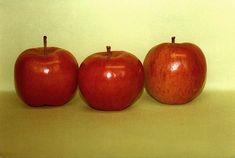
New Zealand’s Braeburn production is set to fall by nearly 20 per cent in 2008 - its lowest volume for at least 10 years.
Total exports of apples and pears from New Zealand are pegged at 15.5 million 18kg cases, or 279,000 tonnes, representing a decrease of six per cent compared with last year’s crop of 16.4m cases, according to figures released this week by Pipfruit New Zealand.
“This year’s reduced crop has been affected by spring frosts in Hawke’s Bay, our major growing district,” chief executive Peter Beaven said. “The most affected variety was Braeburn, down from 6m cases to 4.8m.
“Since then we have had a very good growing season, with greater heat units than last year and enough rain to size the fruit nicely.”
New Zealand’s other major variety, Royal Gala, is showing a similar volume to 2007 at 5.6m cases, or 100,000t. Meanwhile, Enza-controlled variety Jazz is expected to double to nearly 800,000 cases, making it New Zealand’s fourth-largest variety behind Royal Gala, Braeburn and Fuji.
Organic production is also set to increase in 2008. “Already 10 per cent of the land under apple and pear production is either organic or under conversion to organic, and I expect this to grow over the next few years in line with consumer demand,” Beaven said.
Despite the frosts, the largest percentage of the export volume will still come from Hawke’s Bay, which is expected to supply 58 per cent of the crop, at 8.9m cases, while Nelson production will increase slightly to 5.5m cases, or 36 per cent of the national crop.
The 2008 season will also mark the rollout of Apple Futures, a £1m three-year initiative which aims to deliver fruit to market with no detectable residues. “The uptake from growers in year one has been exceptional,” Beaven said. “I am confident that the success of this programme will maintain New Zealand producers’ place at the head of low-input, high-quality technology. This programme confirms the New Zealand apple and pear industry’s commitment to develop sustainable growing practices.”






No comments yet